Blurring the lines between fantasy and reality, the Andaz Prague awakens the cultural soul of the Czech Republic. For the country’s debut Hyatt-branded property, Madrid-based interior design studio Brime Robbins took its role as a visual storyteller to heart with a concept inspired by ancient fairytales.
Contributed by Alicia Sheber
The adventures of the knight Bruncvik teach about loyalty, friendship, stability and strength through quests with the White Lion with Two Tails, a figure appearing on the Czech coat of arms, and include symbols such as a horse, a wing, a magic sword and the eye of Libuše, the queen who prophesized Prague’s existence.
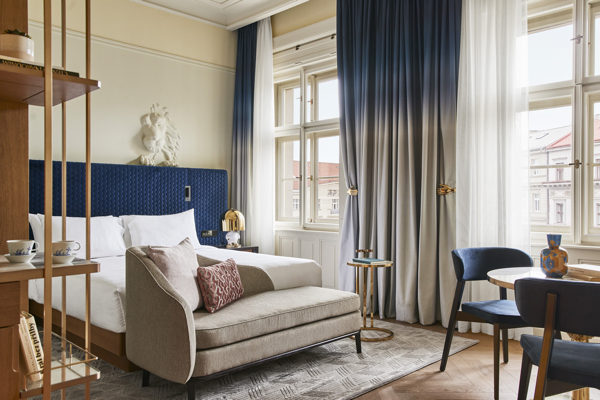
Allusions to these legends become sentimental touchpoints for locals and entertaining anecdotes for travelers, popping up in the lobby, corridors and 175 guest rooms and suites plus the 1920s retro-futuristic bistro, Zem, and the bar, Mez, which features cocktails inspired by Bohemian mythology.
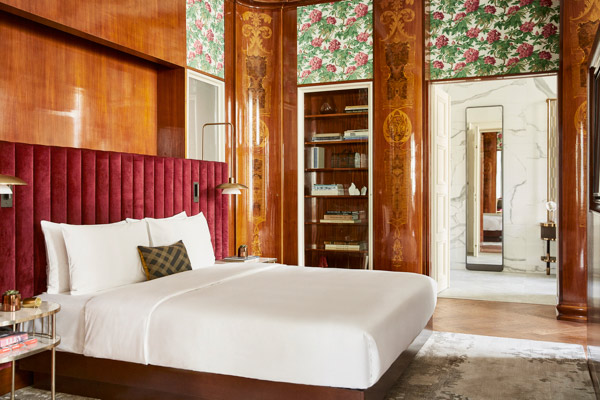
“So many people have responded in a heartfelt way, as these children’s stories are quite alive in the consciousness of adults,” said Garrett Robbins, co-founder, Brime Robbins. “They gave us a landscape in which to play while fitting the luxury lifestyle Andaz brand’s disruptive, surprising, exciting, and sometimes quirky and whimsical attitude towards design.”
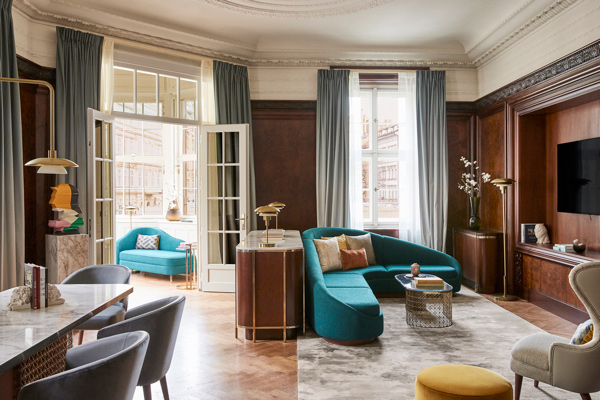
Located in Nové Mest, Prague’s historic old town, the restored 1916 neoclassical landmark is known to locals as “Sugar Palace” since, during its heyday, the building was an insurance hub for the beetroot sugar industry before that market collapsed and it became a bank. Brime Robbins received minimal design rules from Andaz. However, Vienna-based owner UBM Development AG stipulated the avoidance of references to sugar as the concept would be restrictive and feel irrelevant for Czechs.
Prague Heritage Society was intensely involved given the listed structure’s singularity. “This is the last free-standing historical site in the center of Prague – there are no other buildings like it,” said Maria Brime, co-founder, Brime Robbins. “They wanted to protect it because they hadn’t been stringent with past hotel conversions.”
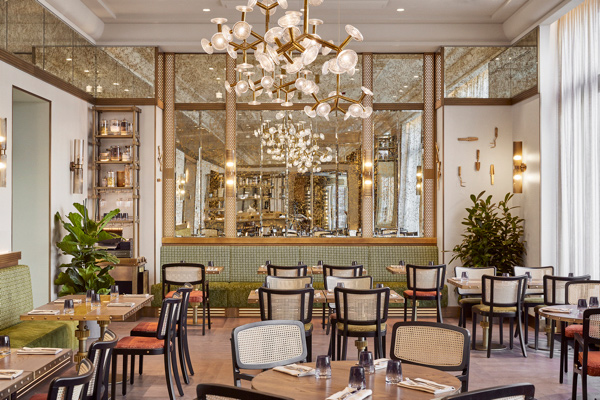
Original moldings were reconstructed or preserved, and all windows, doors and door frames were rebuilt to original architects Josef Zasche and Theodor Fischer’s design. Creating a modern spirit required negotiation, from tinting guest rooms’ requisite herringbone-pattern timber floors pink in reference to Prague’s pastel-colored neighborhoods, to using the obligatory RAL 9013 cream paint on ceilings and walls’ upper portions, and a contemporary saturated blue beneath.
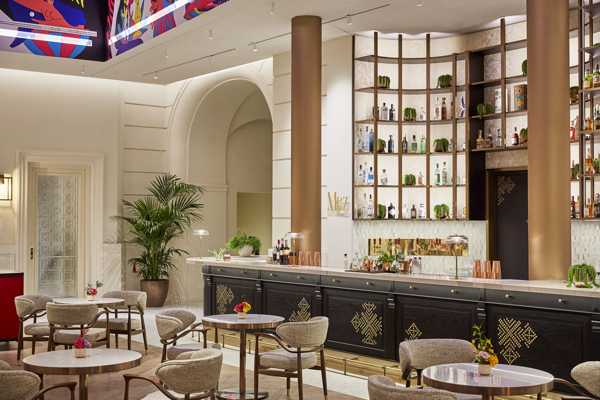
During the restoration the team discovered that 1930s silver screen diva Adina Mandlova resided there in a private boudoir created to her liking with intricate mahogany details and rose-patterned fabric banners that have been maintained. “We didn’t know the room existed until it was uncovered. It was well preserved, but research had to be done to find out what it even was,” Robbins said.
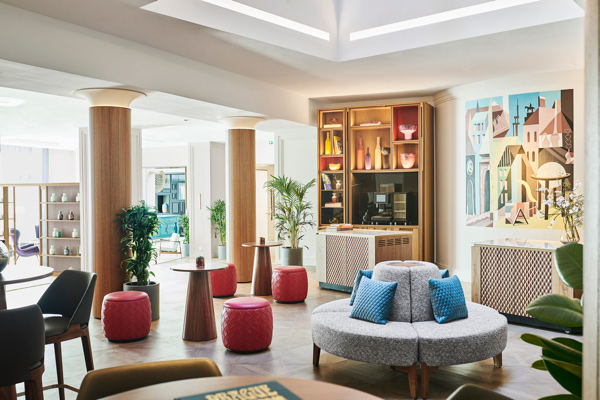
“We imagined the jackhammers were waking up the dead, that the sleeping legends inside this building would awaken to greet guests,” Brime quipped. “That vision inspired our concept of the plaster reliefs emerging from the walls and is what drove the rhythm of our design.”
